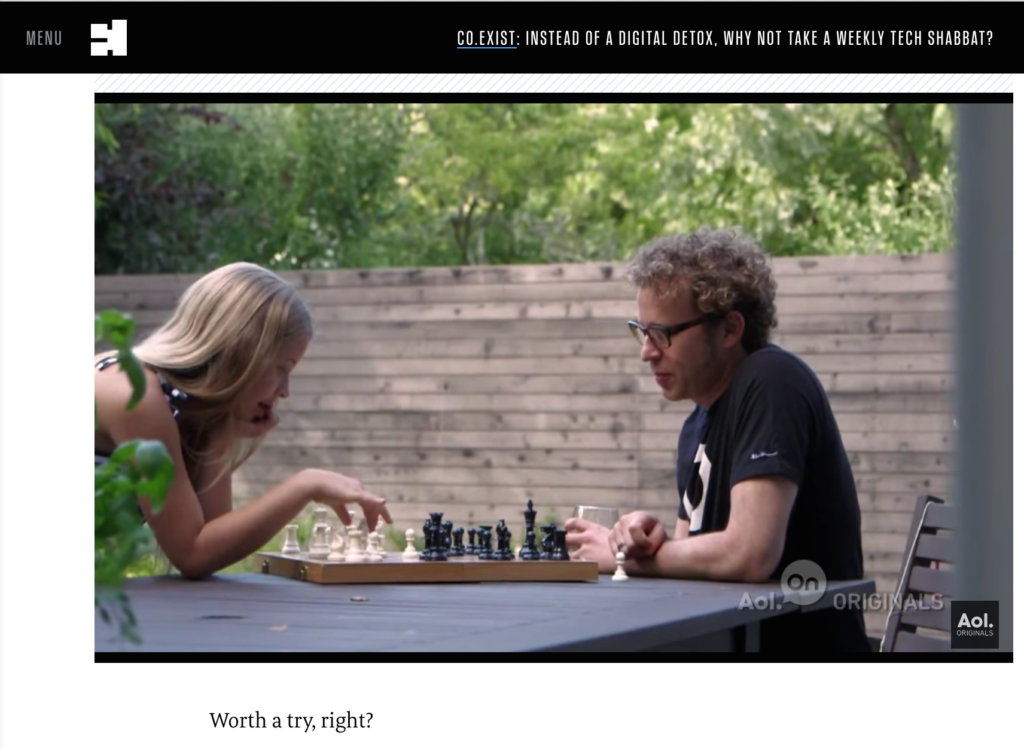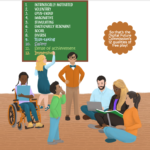What are your models for conversation? I’m rereading Sherry Turkle’s book, Reclaiming Conversation: The Power of Talk in a Digital Age. Sherry Turkle has been studying human-technology interaction for 30+ years. She shares a lot of insights from her work in her newest book.
In this passage from the book she reflects on the Oxford English Dictionary definition of conversation:
Conversation implies something kinetic. It is derived from words that mean “to tend to each other, to lean toward each other,” words about the activity of relationship, one’s “manner of conducting oneself in the world or in society; behavior, mode or course of life.” To converse, you don’t just have to perform turn taking, you have to listen to someone else, to read their body, their voice, their tone, and their silences. You bring concern and experience to bear, and you expect the same from others.
I believe that the practice of conversation—with ourselves and with each other—creates the necessary foundation for learning how to live mindfully with technology in our families. What if we gently shift our focus from technology itself to the practice of conversation by asking ourselves a few questions: How can we create conditions for relaxed, curious, enthusiastic conversation to happen consistently? How do we nurture the kind of deep listening to each other that Sherry is discussing in the quote above?
We carry a lot of judgments about technology—pros and cons. Here’s a good place to start in creating a conversational space in which participants feel safe and trust that they can authentically share what they’re thinking and feeling: Suspend your judgments (yeah, easier said than done). I’m not saying judgment is bad by default. I am saying we need to examine our automatic judgments and suspend them for the sake of developing the conditions required for trust to flourish.
Where and when have you had your worst conversations in the past? Where and when have you had the best conversations? In the car? On a long walk? Around the kitchen table on a Saturday morning? Some families have success dedicating a particular time each week for device-free conversation focused on technology in the family. See Tech Talk Tuesdays for example.
Tiffany Schlain, filmmaker and founder of the Webby Awards, has been observing a practice in her family for 8 years now —Tech Shabbat. In their practice, rather than focusing on talking about technology, they focus on unplugging and being 100% present with each other. Here is a screen shot from the 6 minute video clip:

Experiment. Mix it up. But try showing up consistently in one form or another for Conversation Unplugged, and notice what happens. It’s a slow process. Be patient. Start now. I’d love to hear how it goes.
Go deeper? Watch this presentation by Sherry Turkle at the Cambridge Forum. Her talk lasts for about 40 minutes and then it shifts to Q&A. Watch the talk. It is quite a thought-provoking presentation. If you watched the Will Ferrell video from my previous post, what would you suggest the family needs to do differently at the dinner table based on what you learned listening to Sherry’s talk?


